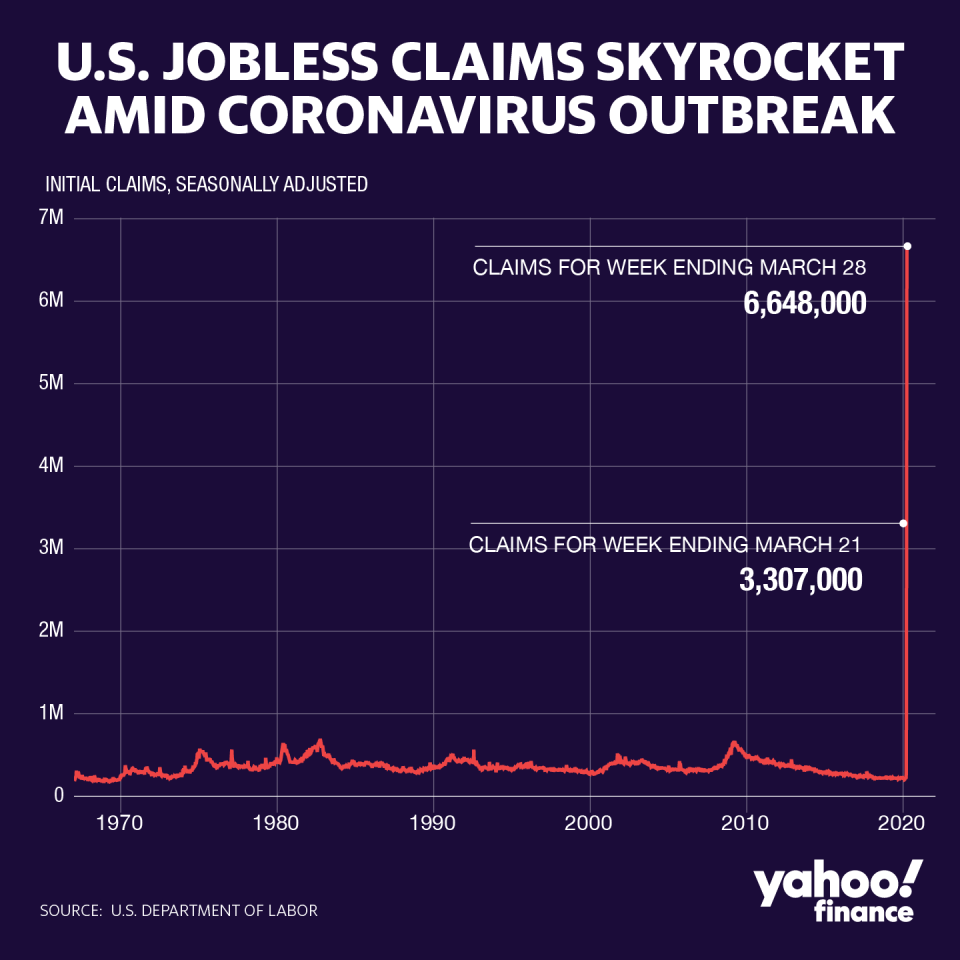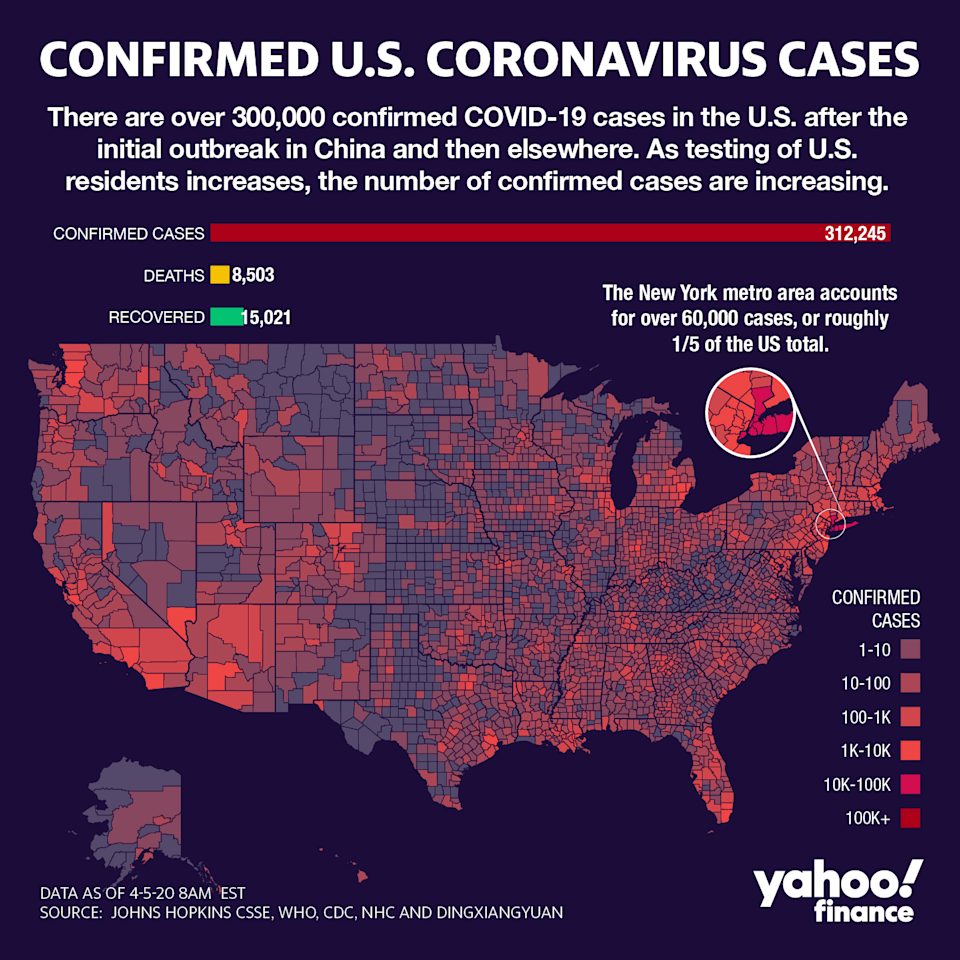Coronavirus pandemic leading to 'unprecedented' financial pain for U.S. households, survey shows
Financial pain for U.S. households triggered by the coronavirus pandemic is starting to show, according to a new survey.
The survey, by Freedom Debt Relief, looked at how 2,335 Americans between the ages of 18 and 74 were dealing with their finances between March 25 to 27, which was after the national emergency was declared.
“Overall, Americans are reporting rapid and unprecedented levels of change in their financial situations since the COVID-19 pandemic arose in the United States,” Freedom Debt Relief President Sean Fox told Yahoo Finance. “Many have already lost their jobs or had their hours reduced. Others face an uncertain future and are trying to understand their long-term employment situation.”

The economy saw an unprecedented 6.648 million people applying for unemployment claims for the week ending March 28. On Friday, the March jobs reports showed that the economy shed 701,000 jobs when economists were expecting a decline of 100,000.
Economists are expecting 20 million U.S. workers to be furloughed or laid off by July because of the economic impact of the coronavirus. According to the St. Louis Fed, as many as 66 million jobs are at “high risk” of being in that situation.

The sentiments expressed in the survey echoed those grim figures: 35% of respondents said that the coronavirus has impacted their current financial situation, and 36% had experienced a reduction in pay or work hours.
“The breadth of the drop in household income is unprecedented,” said Fox.
The respondents were already finding it hard to pay their bills. The survey found that 56% of respondents were concerned about being able to afford to feed themselves and their family; 45% were already struggling to make rent or mortgage payments; 36% said they were likely to miss those payments “within the next six months”; and 30% of respondents said they were likely to miss their health insurance premium payment within the next six months.
The pain is likely to intensify, as many businesses remain shuttered through April.

Drowning in debt, waiting for the stimulus check
In February, weeks before coronavirus pandemic effectively shut down the U.S. economy, household debt in the country reached a record $14.15 trillion.
Nearly a quarter of the survey respondents reported more than $50,000 in overall unsecured debt, with more than half having less than $1,000 in savings and checking accounts combined (excluding retirement accounts). Furthermore, 35% indicated they will be taking money out of retirement savings.
And while the stimulus package recently signed into law was designed to offer some relief to millions of Americans, 31% of the survey respondents said that a single check up to $1,200 wasn’t going to be enough. (And for some Americans, that relief wasn’t even going to come until September.)

Fox noted that delays “on the distribution of these funds will likely trigger a surge in credit card utilization in the short term and could complicate personal financial recoveries in the longterm.”
The IRS is planning to send paper checks first to the lowest-income Americans, i.e. those with incomes of $10,000 or less, starting April 24.
“People who don't get the stimulus checks right away are struggling to pay for food and are even facing foreclosure and eviction,” National Consumer Law Center’s Lauren Sanders told Yahoo Finance. “I heard today that some courts are doing eviction by telephone. People should not go to payday lenders. That will only make matters worse.”
—
Aarthi is a reporter for Yahoo Finance. Follow her on Twitter @aarthiswami.
Read more:
More than 66 million U.S. jobs are at 'high risk' of layoffs amid coronavirus, St. Louis Fed finds
Coronavirus stimulus bill: 7 ways student loan borrowers benefit
Read the latest financial and business news from Yahoo Finance
Follow Yahoo Finance on Twitter, Facebook, Instagram, Flipboard, SmartNews, LinkedIn,YouTube, and reddit.
